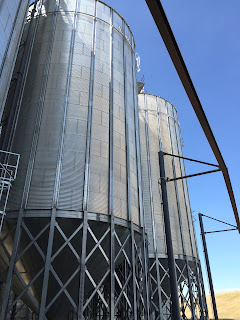 |
| Agriculture and the businesses that support it are essential. |
Though the spirit of the mandate is clear, some workers and business owners are still unsure if the directive applies to them and if their activities are viewed as essential.
For the agriculture industry, here’s what it means to you.
Agriculture and supporting businesses remain open
If you work or do business in food and agriculture – farming, ranching, food processing and production, food distribution; or you work in a business that supports agriculture, like pesticide application, fertilizer distribution, or veterinary care – then you can continue to operate.
Our basic needs, including the need for food, drink and other agricultural products have not changed. Washington is committed to keeping the food supply chain open and operational -- especially during the current crisis.
This is why “Food and Agriculture” is identified in the Governor’s Essential Business list.
 |
| Keeping the food moving helps in the fight against coronavirus. |
During these extraordinary times, essential businesses that remain in operation must do their part to protect workers and fight the spread of the COVID-19 virus by implementing social distancing and sanitation practices.
To help, WSDA has been sharing guidelines for the agriculture industry to help protect workers so they can safely fulfill their essential function. Those resources, for food processors, storage warehouses and packing houses, are available on the WSDA website coronavirus webpage, many of them in English and Spanish.
Keeping food on the shelves
Deliveries to grocery stores are continuing at a steady pace and farmers, ranchers and food processors are producing plenty to meet our needs. By maintaining the food supply chain and safe conditions for workers, we can ensure that store shelves will not go empty and the public can ride out this storm.
WSDA remains committed to ensuring that Washington’s agriculture industry continues to thrive for the benefit of those in the agriculture community, and those of us who depend upon them.











